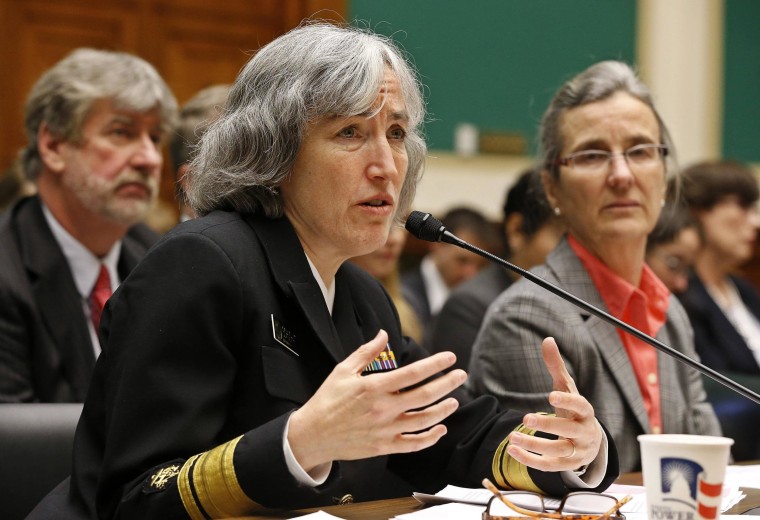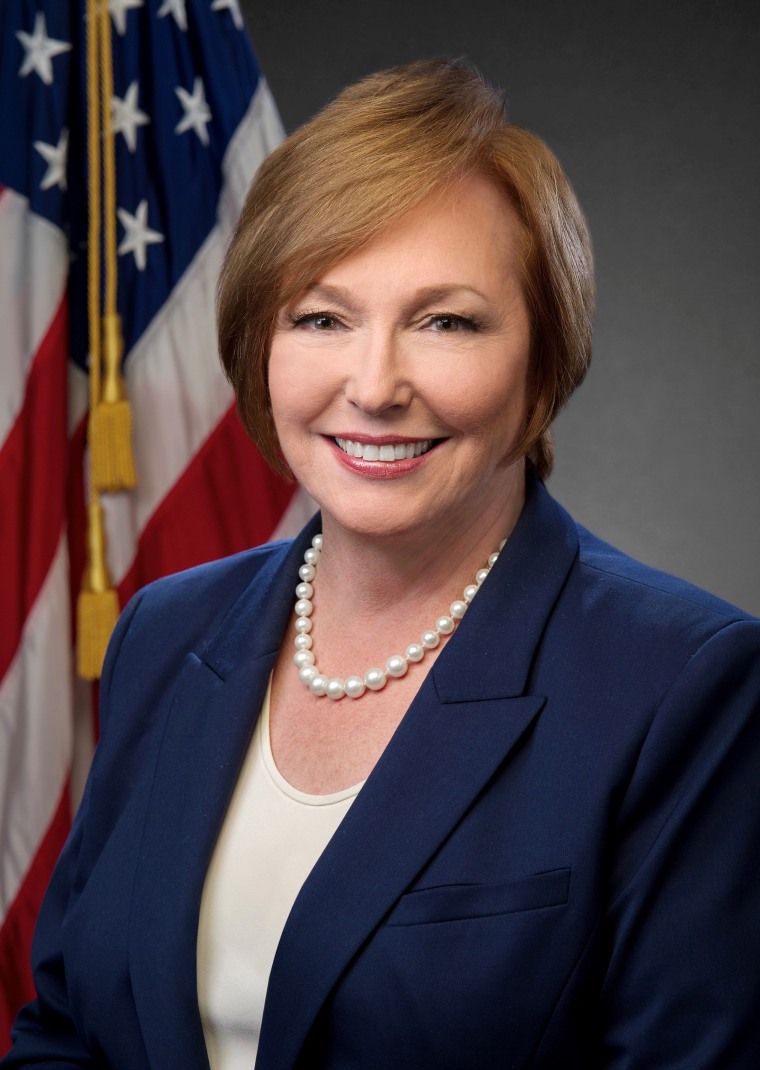It hasn’t been a good year for the Centers for Disease Control and Prevention.
The agency has struggled to keep its funding as President Donald Trump recommended slashing public health spending and as Congress shuffles money around in various budget bills.
It had the “seven banned words” scandal, in which department heads were reportedly asked not to use certain words that might trigger conservative members of Congress who control budget money.
And now the agency’s director, Dr. Brenda Fitzgerald, has stepped down after news reports — first published in Politico — disclosed she had bought stocks in tobacco companies.
“It ain’t good,” said Dr. Georges Benjamin, executive director of the American Public Health Association.
“Is this really going to undermine the ability of the agency to do its work?” asked Jennifer Nuzzo, senior scholar at the Johns Hopkins Center for Health Security.
Related: CDC denies word ban
The CDC is a high-profile and trusted government agency, fighting epidemics in the U.S. and overseas and warning about outbreaks from AIDS to Ebola and Zika. It keeps track of who smokes, who dies of heart disease and whether people exercise enough.
“This agency for a long time has been apolitical, not a center of controversy. It’s been trusted,” Nuzzo said.
The only upside, public health experts agree, is that Dr. Anne Schuchat, a seasoned infectious disease specialist and leader, is back at the helm at the height of a nasty annual flu epidemic.
“Dr. Schuchat is entirely competent and the model for what the next CDC director should be — competent while being grounded in science,” Benjamin said.

Schuchat headed CDC as interim director a year ago, after her former boss, Dr. Tom Frieden, stepped down when Trump took office.
As a career public servant, Schuchat is unlikely to be made permanent director, a job usually appointed by the president.
“She’s well thought of and effective,” said Nuzzo.
But a political appointee will have more clout to negotiate with Congress for more funding.
Last year, Trump recommended cutting the CDC’s annual budget by more than $1.2 billion. Congress has had its sights on a billion-dollar prevention fund that CDC uses to prepare ahead of time for disease outbreaks.
However Schuchat is well-placed to lead the agency at the height of the annual flu epidemic which, by all measures, is severe this year. A rear admiral in the Commissioned Corps of the United States Public Health Service, she’s an expert on pandemic flu and other respiratory diseases.
“Having someone with full technical skills in charge is reassuring,” Nuzzo said.
“Being in government service is very complicated. It does take a financial toll. You take a lesser salary."
Many of Fitzgerald’s colleagues were confused by the news she had owned stocks that could present a conflict of interest. Most government workers — career or political appointees — make sure they don’t have any holdings that might influence or cast doubt on their decisions.
“It takes a certain kind of cluelessness for a director of the Centers for Disease Control and Prevention to purchase stock in a tobacco company a month after assuming the job as the nation’s top public health official,” said Dr. Peter Lurie, president of the advocacy group Center for Science in the Public Interest.
But it’s been a pattern in the Trump administration, Lurie said. The former Health and Human Services secretary, Tom Price, battled reports about his own shareholdings and finally stepped down after media reports revealed he had used public money to take private jets.
Related: Tom Price resigns as Health and Human Services Secretary
Fitzgerald, a former Georgia state health commissioner, had long known Price, a fellow physician who had been a member of Congress from Georgia for a dozen years.
Fitzgerald told The Wall Street Journal she did not know her investment manager had purchased the stocks in Japan Tobacco.
But she had already been questioned by Congress about other financial holdings and had kept a low profile at the CDC while she sorted out the problems.
Benjamin is sympathetic.
“I can understand what happened. The broker buys something, you find out and say, ‘Oh my God, get rid of it,’” he said.
But it goes with the territory.
“Being in government service is very complicated," Benjamin said. "It does take a financial toll. You take a lesser salary."
